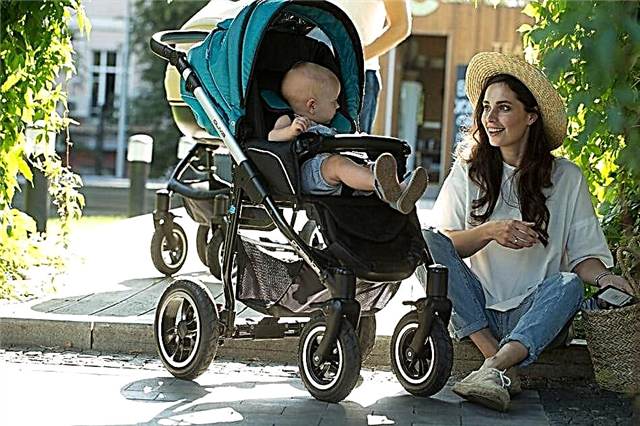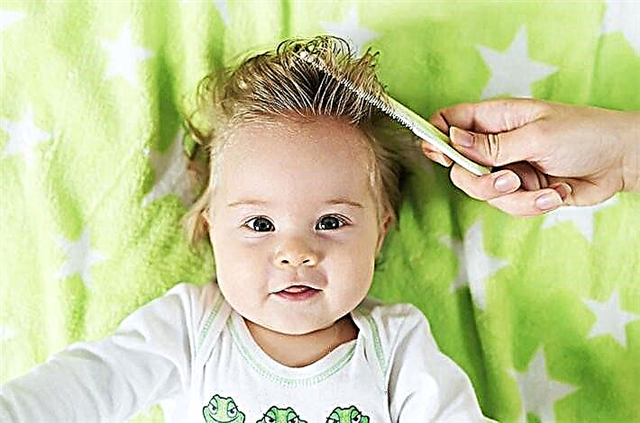As you know, the World Health Organization (WHO) recommends breastfeeding a child up to 2 years of age or older (WHO recommendations), and if a mother practices long-feeding, then at this very moment, she begins to think about whether to give the baby to the kindergarten. Especially when the grown up baby is already beginning to show character, go through developmental crises, and the mother, what to hide, gets tired of sitting at home. As a breastfeeding consultant, I quite often hear this question from a nursing mother when the baby turns 2 years old: "How to properly wean the baby, because we are soon in kindergarten?" I ask: "And if it was possible to combine kindergarten and feeding, would they feed further?" And many moms answer: "Of course!"
It turns out that circumstances dictate the end of breastfeeding, although both sides would like to continue it.

What difficulties do mother and child face on the way, in connection with going to kindergarten, if breastfeeding is not interrupted?
The first thing that mom thinks about is the need to give the baby to the kindergarten at 2 years old. And she's right to doubt it experts in child psychology advise sending kids to kindergarten from 3 years old. At this age, children can already be consciously in a team, they know how to communicate, there is communication skills and a desire for joint games with peers. What will we see in kindergarten if we go into a group of very little ones? Basically, every kid plays by itself, in its own corner, practically not paying attention to other children. Due to their development, children of this age do not strive to take part in collective games to the fullest. But as they grow up, the situation changes dramatically, three-year-olds are drawn to communication, want and know how to play together. So if there is such an opportunity, it is better not to rush to give it to the garden at 2 years old, at this age, pencil babies still really need their mother, her closeness, coziness, tranquility and comfort that the presence of mother gives.
If this is not possible, then we begin to prepare in advance both ourselves and the future kindergartener. It would be better that the first trip to the kindergarten was at least a month before your expected return to work, if you want to combine these two significant events. This will allow both you and your button to slowly get used to the new status, new environment, new events.
In many preschool institutions, it is allowed to come with a baby to a group or to a playground for familiarization and play, so that the child can more easily adapt to a different atmosphere. Ask the head of the institution if it is possible for you to come with a baby to a group or to a playground so that the child gets used to the new territory.
From my own experience, I recommend bringing your home regime closer to the kindergarten regime in advance. Believe me, it will not be easy for a child if he is used to going to bed at 22-23 pm (and this happens quite often), and he will need to get up at 7 am (how to wake up a child in kindergarten), when he usually sleeps until 9. The same applies and daytime sleep. Approaching the home regime to the kindergarten will greatly facilitate adaptation to the kindergarten.
If parents thought about the consequences of their actions: 4 examples of unsuccessful adaptation to kindergarten - https://razvitie-krohi.ru/eto-polezno-znat/4-primera-neudachnoy-adaptatsii-k-detskomu-sadu.html
About falling asleep
The second acute angle when combining breastfeeding and visiting kindergarten. Many moms even see this as the main problem. "He won't fall asleep there without a sissy!".
In fact, this is not the case. As you know, caregivers are opposed to the continuation of breastfeeding and require the baby's ability to fall asleep on its own. But as practice shows, this is not at all necessary. If your toddler knows how to fall asleep with other family members, mom does not need to starve him and teach him to fall asleep without a breast. Once in a different atmosphere, where you have to obey the teacher, where other children show an example, even the most persistent "boobies" eventually go to bed and fall asleep on their own. Of course, it is possible that at first it will not do without whims, requests to call mom, give a toy, lie on the hands of the teacher, but this usually quickly passes. In my case, it helped a lot to send my favorite doll “on a business trip” with my daughter to the kindergarten, to which I whispered with my daughter to protect and help my girl to fall asleep. You know, it worked, maybe it will come in handy 🙂

If you are afraid that in the kindergarten there will be problems with falling asleep without a breast - chase doubts away. Children in the garden fall asleep and sleep worse, not because there is no breast, but because the environment is unfamiliar and there is no mother. And they go through this as those who are still feeding, as well as those who grew up on artificial feeding. And, believe me, the child will not ask the teacher for breasts.
And there is one more point that I would like to discuss and it is also of interest to many. And why, in fact, keep breastfeeding when the child goes to kindergarten?
It is not easy for every baby to get used to attending preschool. On average, the adaptation period lasts about six months, sometimes less, sometimes more. The kid gets used to new people, a different environment, learns to follow the established rules - all this is not easy for the child's psyche, but this is also a necessary stage in its development. Parting with mom in the morning is an everyday tragedy, experts in child psychology even suggest that another family member should bring the baby to the garden at first, then this moment passes easier. So, it is breastfeeding, upon returning from kindergarten, that island of reliability and stability for a kindergartner, that ritual that allows you to relieve stress, calm down and understand that everything is not so scary, everything is fine and mom is nearby. Helps to reunite with mom after separation, to feel again that amazing connection that breastfeeding gives.
There is a rather pragmatic sense in continuing to feed during the period of adaptation to the garden. As you know, in breast milk in the second or third year of a child's life, the amount of immunoglobulins, protective factors, antibodies and antiviral components increases. And your child will have to contact with the teacher and other children, which means with a wide variety of viruses, microorganisms and microbes. And then - breast milk is in a hurry to help! It will perfectly support the immune system, which means your baby will get sick less often and recover faster! Agree, this is an important plus in favor of maintaining lactation.
And one more factor that also matters. Weaning, in such a difficult period for a child, when he is just learning to live in society, can serve as additional stress, which can undermine the child's psyche. Some mothers make a big mistake, postponing weaning until the last, or first planning to continue GV, and then change their minds and refuse to breastfeed their baby just a few days before the first visit to kindergarten. Think about what it is like for a baby, this is a real tragedy for him, do not do this with your crumbs!
It is especially impossible to wean a child in front of kindergarten, because weaning is stress (we are talking about forced weaning), and adaptation in kindergarten is stress, you should not impose one on the other.
So, my dears, do not rush to stop GW if you are going to kindergarten. These two areas of life that are most important for a child can be combined. And most moms who do this say that everything is easier than they thought. And self-excommunication will happen sooner or later. Perhaps when you yourself do not expect.
And that's all for today, your Julia



